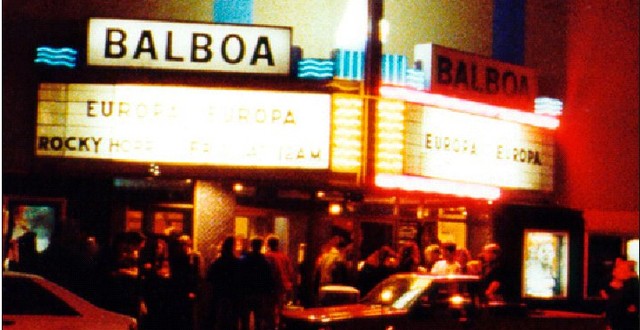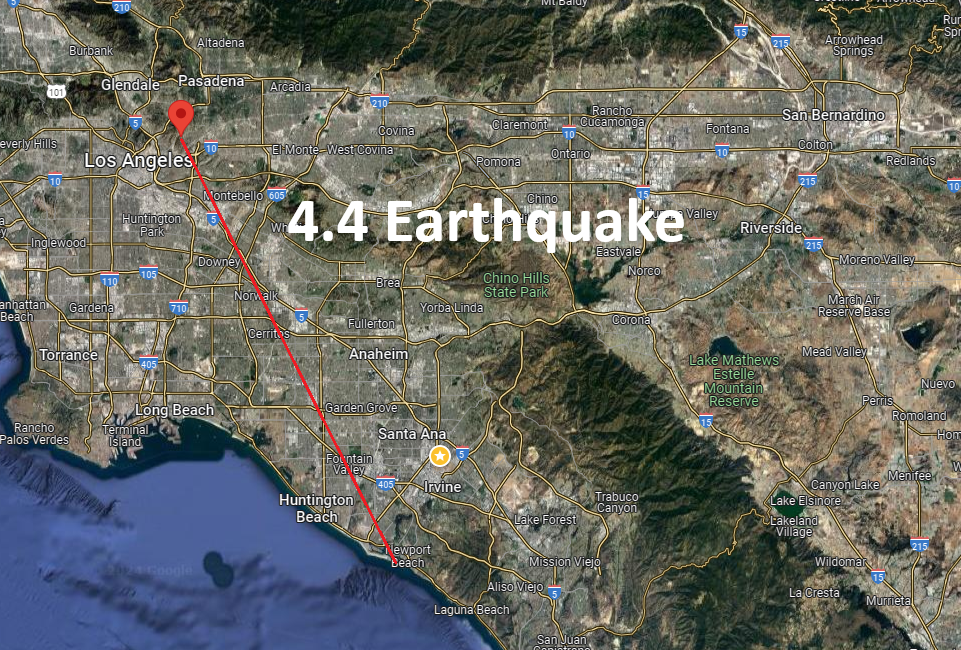The Balboa Theater has been a central theme to Newport– seemingly beyond its own reach– for nearly its entire existence. Originally a opening as The Ritz Theater in 1928, it was renamed Balboa Theater in 1939, and converted into the most notorious Balboa speakeasy during Prohibition, and then into a Pussycat Theatre (yes, that is what you think it is) in the early 70s.
Almost the entire time, it struggled. Almost the entire time, it was the topic of heated conversation.
In 1998, the city of Newport Beach took ownership of the building through a donation process, and intended to begin re-construction in 2008. Needless to say, that didn’t happen. After years and years of fundraising mishaps from a non-profit group seeking to remodel the theater, the concept lost public support and the city decided to sell the building which could never seem to find a solid identity.
…But I wanted to do something truly great for the community. As many of you know, I have a small software development company– that is how I make my living. My community activism is at my own cost and my own expense– it is something I do out of an undying passion for our community– not for a profit (in fact, I lose a ton of money doing it!). In the same vein, I saw this as an opportunity to use this passion to create a physical manifestation what I wanted to provide to our community: Revitalizing Balboa.
The building is a tear-down. With gaping holes in the ceiling and sand for floors, the entire building needs to be rebuilt from the ground-up– a very expensive process when considering that the structure also needs to be able to hold over 500 people and has a foundation that is literally on sand dredged up from the gully of the bay.
I didn’t care: I was ready for this project. I was ready to turn all of my energy and my activism to a physical structure to revitalize Balboa Peninsula after the damage that government-funded debacles like ExplorOcean had done to the energy in the area. I was ready to take it on.
So I bid on the theater. Full price. In cash. It was a very high bid for a tear-down, but the price exactly what the city was expecting, so I felt both sides would it call it fair. In the real world, a full cash offer on a property would close in 5 days. Done.
But then two months passed…
On Oct 7 (two months after my full-market bid in cash), the city sent a letter out in certified US mail. This letter requested a detailed business plan, demanded that the bottom part be a theater, and prevented the sale of the building to anyone who wouldn’t keep it a theater. It also stated that if these conditions were not met, that the city could come and buy (ie: forcefully take) the property back for what the city deemed to be a fair market value. We all know how “that” works!
Here is where this becomes an issue: It is both robbing the taxpayers from receiving the highest market value for the building (just select the top bidder– even if it’s not me!) and it is also preventing the free market from finding the best fit for the building.
My plan all along was to put a theater in the bottom and serve drinks up top– but being told that if that fails then I am forbidden from other options is both a horrifying proposal and a violation of free market principals.
So what if I buy it and I do something stupid with it, like put in a 1990s Pog Gallery or a baseball card trading shop?
Well, if I spent all that money to buy and rebuild the building, and then I decide to put baseball card trading shop in there, then my business will surely fail. What would happen to the building? Would it sit vacant with a hole in the roof and no floor for 30 years? No… that kind of thing simply does not happen with commercial properties in the free market (zing, government! 🙂 ).
Someone would buy the property. Maybe I get my initial investment back– maybe I don’t. Regardless, this process of buying and selling would repeat until a viable business was able to move in. If someone had a better idea for what to put there, they would approach that viable business and offer to buy the building or rent from it. This process would also repeat– until the maximum use for the building was realized.
By the city saying that it can “only be a theater, ever”, it actually *prevents* the revitalization of the peninsula in precisely the same fashion that the city-subsidized ExplorOcean has destroyed the foot-traffic in the FunZone (thereby affecting surrounding businesses).
Now, I know that the government likes to tinker with the free market and I know that council likes to put their name on everything to proclaim that they are “doing something for the community”, (and without their names on brass plaques everywhere, how would they ever prove it? [zing!]). However, government intrusion into the free market always creates either failures or bubbles– because it is impossible to centrally plan the ever-changing trajectory of the free market value line(s), therefore they will forever be out of sync.
Look, I’m not Scrooge McDuck. I struggled big-time to put that money together in cash in a hope-beyond-all-hopes that this bid would close quickly. This could have all been over 5 days after the bids came through. And can you believe the city missed an opportunity to shut me up for good? After thinking about it, I certainly could not have been as vocal if I had tons and tons of money sunk into a public commercial building in the area! Perhaps it is for the best 🙂
If the city wants to sell the building, they should sell it– and they should sell it to the highest bidder– regardless of who that is. If they don’t, they will be ignoring their fiduciary duty to the taxpayers for collecting the maximum value for taxpayer-owned property, and they will also be harming the free market and therefore the revitalization of Balboa Peninsula.
 Save Newport Real News in Newport Beach
Save Newport Real News in Newport Beach




